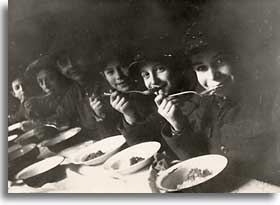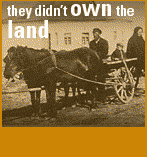

To Eat or Not to Eat... That is a Jewish Question!
The subject of food is everywhere in Jewish culture. Food has always been an important part of our traditions. Think back to Adam and Eve, the story to begin all stories in the Torah. After God creates Man and Woman, he creates for them the Garden of Eden, instructing them:
"Of every tree of the Garden you may freely eat; but of the tree of the knowledge of good and evil, you shall not eat of it"
This is the very first indication that there are some foods that you can eat, and others that you must not. This will then extend to become a more generic principle: there will always be some limits put upon human behavior.
Food has always meant more than just what we eat for lunch or dinner. Throughout history, we have assigned a very special meaning to the foods that we eat. Foods have been given religious significance, medicinal significance, and folkloric significance. We have 'comfort food', 'home remedies', and 'aphrodisiacs'. The choice "to eat or not to eat" is one that each of us confronts today. For example, someone may choose vegetarianism, deciding that the foods they eat in some way represent their compassion for animals, or even their political ideals. Observing the Jewish dietary laws - keeping kosher - is another way of positively determining what is acceptable or unacceptable as foodstuff. By looking at a group's food, we can learn about their values and their ethics.This information can offer us an opportunity to think about the purpose of the rules observed and the underlying principles on which they are based. Further, in Jewish tradition there is a code of behavior that accompanies what we eat and the meals that we prepare. Abraham, the father of this tradition, received three strange visitors to his home one night. The hospitality that he showed them by inviting them to sit at his table, sharing his bread and his meat with them, is instructive: we must know what to eat, but also who to eat with and how to share.
What is Jewish Food?
With Jewish communities spread all over the world, what exactly is Jewish food? When Sephardic Jews taste the well-known Ashkenazi "gefilte fish" (stuffed fish), often served at Passover, they comment on its tasteless quality. Their cuisine is known for sharper seasoning. But even among Ashkenazi Jews, gefilte fish has several styles: it can be salted or sweet, and it has entered the folklore as a delicacy. If Polish Jews and Iranian Jews, for instance, each have their own set of food customs, what common customs about food do different Jewish traditions share?
The basic food customs shared by traditional Jews the world over are centered on the Jewish dietary laws. Using these dietary laws as a base, Jews have embraced and adapted some of the foods native to their new lands. Using these they have created a new, distinctly Jewish cuisine, in every land where they settled.
















